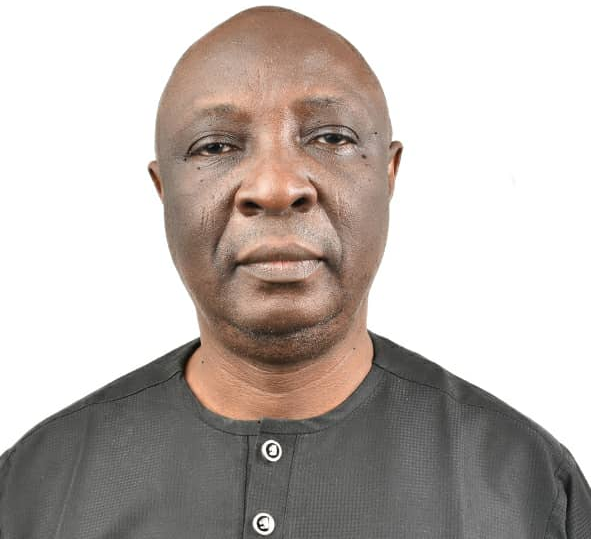Experts Urge Nigeria to Monetize Oil, Gas Reserves Before Global Demand Declines
Former Nigerian Economic Society president, Prof. Adeola Adenikinju, has urged Nigeria to quickly monetize its oil and gas reserves.
He warned that the global shift to clean energy could soon make fossil fuels less valuable.
Nigeria has been advised to urgently monetize its vast oil and gas reserves before the global shift toward renewable energy reduces demand for fossil fuels.

This call was made by former President of the Nigerian Economic Society, Professor Adeola Adenikinju, who said the country risks being left behind in the fast-changing global energy landscape if it fails to act decisively.
Speaking in Abuja at the 18th Annual International Conference of the Nigerian Association for Energy Economics and the International Association for Energy Economics, Adenikinju warned that global energy dynamics are becoming more complex, shaped by geopolitical tensions, technological changes, and the push for clean energy.
The conference, themed “Emerging Geopolitics of Energy: Navigating Global Shifts and Impact on Emerging Countries,” brought together policymakers, academics, and industry experts to examine the effects of global energy politics on developing economies.
Adenikinju described Nigeria’s situation as a paradox, being one of the world’s top oil producers yet struggling with severe energy poverty. He noted that more than 87 million Nigerians still lack access to electricity despite the country’s huge natural resource base.
He urged the government to prioritize the commercialization of its oil and gas resources before global demand peaks, stressing that hydrocarbons could become stranded assets if Nigeria fails to act quickly. He said the country must expand investments in solar, hydro, and wind energy while maximizing existing oil and gas output to fund the energy transition.
According to him, recent global developments such as the war in Ukraine and the rising demand for artificial intelligence infrastructure have exposed weaknesses in global energy systems and highlighted the need for long-term planning.
Adenikinju also discussed the economic consequences of rising geopolitical tensions, including the breakdown of energy partnerships between Europe and Russia. Before 2022, he said, about 40 per cent of Europe’s natural gas came from Russia, but that figure has fallen sharply, forcing nations to seek alternative energy sources.
He explained that policies like the European Union Green Deal and the United States Inflation Reduction Act are reshaping global energy supply chains, especially for critical minerals such as lithium and cobalt, which are vital for renewable technologies. He added that competition between the U.S. and China for dominance in green technology is further deepening global energy uncertainty.
“The world is moving toward a low-carbon economy, and countries that fail to prepare could lose out. Nigeria must not be one of them,” he said.
Citing International Energy Agency data, Adenikinju noted that global economic instability and high interest rates were affecting investment decisions, especially in developing countries. He warned that uncertainty in oil and gas markets could delay key projects in Nigeria unless the government strengthens investor confidence and financing systems.
He advised African nations to go beyond exporting raw materials and instead build local value chains for clean energy production. He pointed to Kenya, Vietnam, and India as examples of developing countries that have attracted significant green investments through policy reforms and incentives.
Adenikinju said the Petroleum Industry Act and renewed private-sector participation were encouraging signs but urged faster action to boost infrastructure and regulatory stability.
He also called for stronger regional collaboration through the African Union to protect the continent’s mineral wealth and enhance competitiveness in the global energy market.
“In terms of macroeconomic policies, Nigeria is making progress,” he said, “but reforms must include support for vulnerable groups, as the market alone cannot provide protection for everyone.”
The economist further recommended that the government improve electricity access through large-scale solar deployment and remove barriers that limit domestic gas use and distribution.
Also speaking at the conference, President of the International Association for Energy Economics, Professor Edmund Lewis, praised Nigeria’s leadership in promoting energy policy dialogue in Africa. Represented by Professor Wunmi Iledare, he urged developing countries to adopt a realistic approach to energy transition that aligns with their growth needs rather than copying Western models.
“Africa’s energy future should be one of pragmatic prosperity, not a repetition of Europe’s past,” Iledare said. “Our focus should be on data-driven, inclusive, and practical policies that reflect Africa’s realities.”
Similarly, the Secretary-General of the African Petroleum Producers Association, Omar Faruk, said the International Energy Agency’s recent recognition that fossil fuels cannot be phased out quickly supports Africa’s position on maintaining a balanced approach to energy transition.
He warned that Africa’s overdependence on imports for both renewable and conventional energy components could undermine development if the continent does not strengthen its production capacity.
Faruk said Nigeria and other African producers must first master their existing energy systems before fully shifting to renewables, stressing that energy security should remain a top priority.



